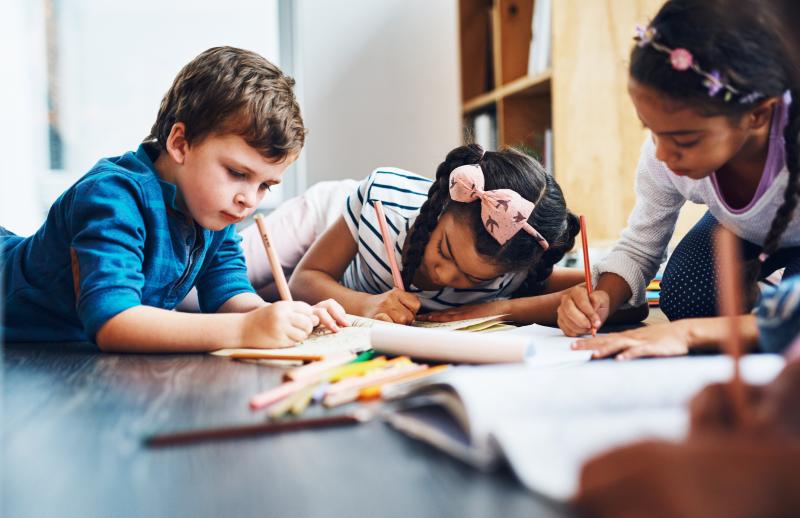What are the important skills of early childhood?
Early childhood is a critical period for the development of various skills that form the foundation for future learning and well-being. The following are key skills in early childhood development:
Cognitive Skills:
- Language Development: The ability to understand and use language, including vocabulary, grammar, and communication skills.
- Problem-Solving: Developing problem-solving skills to understand and solve simple problems.
Motor Skills:
- Gross Motor Skills: Physical skills involving large muscle groups, such as crawling, walking, running, and jumping.
- Fine Motor Skills: Precise movements using small muscle groups, like hand-eye coordination, grasping, and drawing.
Social and Emotional Skills:
- Social Interaction: Learning to interact with others, share, take turns, and play cooperatively.
- Emotional Regulation: Developing the ability to recognize and manage emotions, as well as understanding the emotions of others.
- Empathy: Understanding and responding to the feelings of others.
Self-Help Skills:
- Self-Care: Learning basic self-care tasks such as dressing, feeding, and personal hygiene.
- Independence: Developing a sense of independence and the ability to complete tasks on their own.
Cultural and Communication Skills:
- Cultural Awareness: Developing an understanding and appreciation of different cultures and backgrounds.
- Communication Skills: Expressing ideas and feelings through verbal and non-verbal communication.
Literacy Skills:
- Pre-Reading Skills: Early exposure to books and print, understanding of letters, and phonemic awareness.
- Storytelling: The ability to create and understand narratives, fostering imagination and language skills.
Numeracy Skills:
- Counting: Learning to count and understand numerical concepts.
- Basic Math Skills: Introducing basic mathematical concepts like addition and subtraction through play.
Creativity and Imagination:
- Artistic Expression: Exploring creativity through drawing, painting, and other forms of artistic expression.
- Imaginative Play: Engaging in pretend play and using imagination to create scenarios and stories.
Curiosity and Inquiry:
- Exploration: Encouraging a sense of curiosity and exploration of the environment.
- Questioning: Developing the ability to ask questions and seek answers.
Resilience and Perseverance:
- Problem Resilience: Developing resilience in the face of challenges and the ability to bounce back from setbacks.
- Perseverance: Encouraging the persistence needed to complete tasks and achieve goals.
Executive Function Skills:
- Attention and Focus: Developing the ability to pay attention and concentrate on tasks.
- Memory: Building memory skills for learning and recalling information.
Early childhood education programs and experiences that provide opportunities for play, exploration, and positive interactions contribute significantly to the development of these skills. Parents, caregivers, and educators play crucial roles in fostering a supportive environment that nurtures the holistic development of children during these formative years.
How does early childhood education contribute to the development of critical thinking skills?
Early childhood education plays a crucial role in fostering critical thinking skills, laying the foundation for lifelong learning and success. Here's how:
1. Nurturing Curiosity and Inquiry:
- Open-ended questions: Educators encourage children to ask questions, explore their environment, and investigate their curiosities. This sparks critical thinking by challenging assumptions and seeking deeper understanding.
- Hands-on activities: Play-based learning allows children to experiment, explore, and test their ideas through hands-on activities, promoting problem-solving and creative thinking.
2. Developing Problem-solving Skills:
- Encouraging exploration and experimentation: Children are encouraged to try different approaches, learn from mistakes, and adapt their strategies to overcome obstacles. This promotes resilience, flexibility, and problem-solving skills.
- Collaborative learning: Engaging in group activities helps children learn from each other, share ideas, and develop collaborative problem-solving skills.
3. Building Communication Skills:
- Language development: Educators encourage vocabulary development, clear communication, and explanation of ideas. This allows children to express their thoughts effectively, participate in discussions, and defend their arguments.
- Active listening: Children learn to listen attentively to others, ask clarifying questions, and consider different perspectives. This fosters critical thinking by encouraging them to analyze information and assess its validity.
4. Promoting Creativity and Innovation:
- Creative activities: Play-based activities like art, music, and storytelling encourage children to think outside the box, come up with new ideas, and express themselves creatively. This promotes innovative thinking and problem-solving approaches.
- Open-ended tasks: Instead of providing clear instructions, educators offer open-ended tasks that encourage children to explore different possibilities and find their own solutions. This fosters independent thinking and creativity.
5. Building a Growth Mindset:
- Positive reinforcement: Educators encourage children to persevere through challenges, learn from mistakes, and see them as opportunities for growth. This fosters a growth mindset, promoting resilience and critical thinking.
- Celebrating effort and progress: Instead of focusing solely on outcomes, educators celebrate effort, process, and progress. This encourages children to take risks, experiment, and learn from their experiences.
Overall, early childhood education provides a rich environment for developing critical thinking skills through various activities and experiences. By nurturing curiosity, promoting problem-solving, encouraging communication, celebrating creativity, and fostering a growth mindset, early educators equip children with essential skills for lifelong success.












